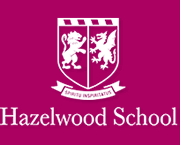
War Memorial
| Lieutenant Colonel William Gryce CHARLESWORTH TD | |
|
1/1st Yorkshire Hussars (Alexandra Princess of Wales' Own) Yeomanry attached to the 12th (Service) Battalion King’s Own Yorkshire Light Infantry (Pioneers) Date of birth: 16th October 1879 Date of death: 19th April 1961 Died aged 81 Unknown |

|
| William Gryce Charlesworth was born at Stanley in Yorkshire on the 16th of October 1879 the third son of Charles Ernest Charlesworth JP, a colliery proprietor, and Margret Blanche (nee Statter) Charlesworth of Conyngham Hall Knaresborough in Yorkshire. He was educated at Hazelwood School until April 1893 when he left for Eton College where he was in H.W. Mozeley’s house from April 1893 to December 1895. In 1899 he went to South Africa where he served as Sergeant 5539 in the 3rd (Gloucestershire) Company, 1st Battalion Imperial Yeomanry. He was commissioned as a 2nd Lieutenant in the Yorkshire Dragoons Yeomanry (Queen’s Own) Imperial Yeomanry on the 12th of March 1902 and was promoted to Lieutenant on the 3rd of June 1906. He transferred to the Yorkshire Hussars (Alexandra Princess of Wales' Own) Yeomanry with the rank of Lieutenant on the 17th of February 1912 and was based at Doncaster where he was the commanding officer of No. 1 Troop in C Squadron. He was married at All Saints’ Church, Ennismore Gardens in London to Lucy Estelle (nee Stocks) in 1905; they had two sons, Geoffrey Charles Barn, born on the 20th of August 1906, and Myles Stobart, born on the 23rd of November 1909, and two daughters, Patricia E., born in 1918 and Irene E., born in 1915. They lived at Conyngham Hall, Knaresborough and later at Boston House, Boston Spa in Yorkshire. Following the outbreak of war, he was promoted to temporary Captain on the 11th of November 1914 and served as Regimental Adjutant until the 27th of February 1917. He was promoted to Captain on the 21st of August 1917, with precedence from the 1st of June 1916. He was attached to the 12th (Service) Battalion King’s Own Yorkshire Light Infantry (Pioneers) and arrived in France in November 1917 where he joined them in the field at Cambliqneul on the 12th of December 1917. On the 14th of February 1918 the battalion was at Ecurie when he was posted to Neufchatel where he attended a course on horse management. Having seen heavy fighting during the German spring offensive, the battalion was in billets at Renaix, near Courtrai when news came through on the 11th of November 1918, that the hostilities would cease at 11am. On the 23rd of January 1919 he and other members of the battalion were awarded 31st Divisional Badges and Parchments and on the 21st of March 1919 he left the battalion to return to England for demobilisation. He was awarded the Territorial Decoration on the 19th of August 1919. He was promoted to Major on the 9th of June 1920 and to Lieutenant Colonel on the 1st of September 1928. He retired from the Territorial Army on the 1st of September 1932 with the rank of Lieutenant Colonel. He worked for many years in the brewing business, becoming Chairman of Yorkshire Breweries and of Carter’s Brewery of Knottingley. In 1910 he was appointed as a Justice of the Peace and was elected to the West Riding County Council, where he as Chairman of the Highways Committee. In 1923 he became a County Alderman and in 1929 a Deputy Lieutenant. During the Second World War he commanded the 12th West Riding (Tadcaster) Battalion of the Home Guard. |
|
| Went on to Eton College |
Back